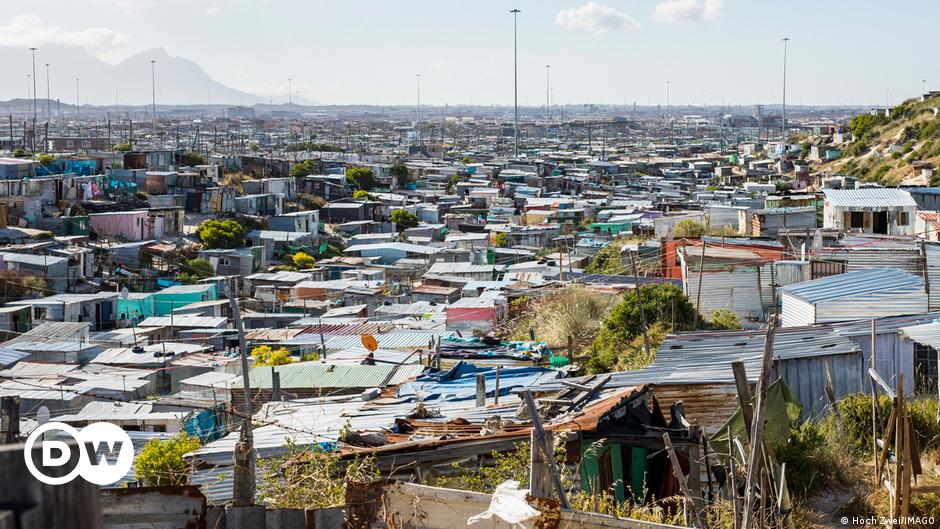Thirty years after the end of apartheid, South Africa is looking back on a democratic but deeply divided society. Political divisions have fueled a growing disappointment with Nelson Mandela’s liberation party, the ANC.
As a newly democratic country, South Africa got off to a euphoric start with its first free elections in 1994.
People queued up for hours to cast their votes, full of hope, optimism and joy. That positive spirit continued as Nelson Mandela was elected president after spending 27 years in prison.
The African National Congress (ANC), Mandela’s political party and former anti-apartheid movement, came into power, ending not only white minority rule but centuries of colonialist mentality. It’s still in power today.
However, looking back on the past 30 years, the assessment on the state of Mandela’s “rainbow nation” is sober: The economy in the Cape of Good Hope is ailing, society is still divided along racial lines and people feel their politicians don’t understand them.
Meanwhile, the gap between rich and poor has kept growing — despite the fact that the ANC made the issue a central concern when it came to power in 1994. Frustration over these shattered dreams runs deep.



I’d be happy to hear more.
I don’t think that a post on Lemmy is going to do much to reveal much, but
And yet, the suburbs outlying, for example, Cape town, are largely populated by white people who would be considered working/middle class by European standards.
The generation of black leaders that are coming up now are the first generation that had even the remotest shot at a real education and such, so I would expect to see the balance tip significantly further in the coming two decades.
What I do see - independent of skin color - in South Africa is massive separation of economic classes. The minimum wage is something like usd2/hr, maybe worse - but cars cost the same as in the western world, and home prices are largely similar as well.
There is almost no hope for someone born into poverty to ever be able to own their own car, as they can’t afford to stop scraping for food from the moment they are old enough to walk.
That doesn’t change based on skin color.
Last year in Cape Town I had the pleasure and privilege of working with a lovely and skilled gentleman. He was born into near-poverty and managed to get himself into a reasonably decent I.T. job. He told me that legally he is ‘coloured’ but he grew up in a ‘black’ area. (Visually he looks very similar in skin tone to Wesley Snipes) He said the first thing he did when he got his first I.T. job was move to a ‘white’ neighborhood which “was pretty much all coloureds anyway” - I asked him to explain this to me, and long story short, he said that it wasn’t about skin tone, but the level of violence and risk to property. He then showed me his stab wounds which he alleges he got “just for walking in a black neighborhood.”
So there is definitely a perception among the population that race is connected to status/economic advantage/etc. - but it doesn’t necessarily represent today’s reality.
I stayed in a reasonably upscale hotel during that stay, and based on hotel breakfast attendance, I have no doubt that the race makeup of hotel guests was representative of the race makeup of the general population.
There’s no doubt in my mind that historically, white South Africans held all the cards, but for people born after the 80’s that doesn’t seem to be the case any more. The next couple of generations will see that flip completely, I think, but the wealth gap is so severe that the ‘walking-dead-poor’ class will continue for generations to come.
All of this to say that disadvantaging Whites today because they were winning during apartheid isn’t helping anyone except those at the top of the economic ladder.
Interesting. Thanks for sharing!